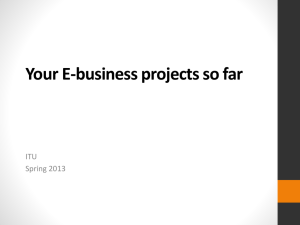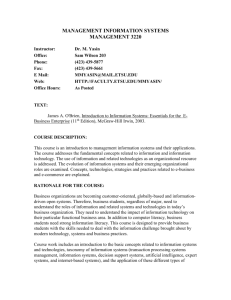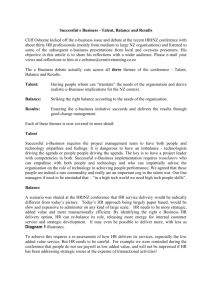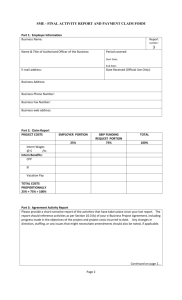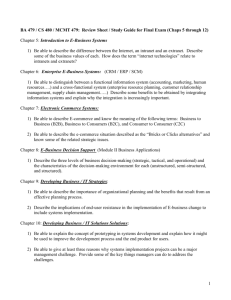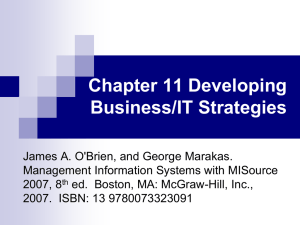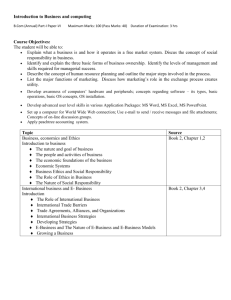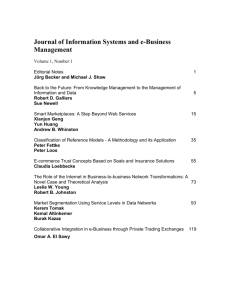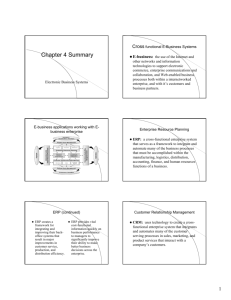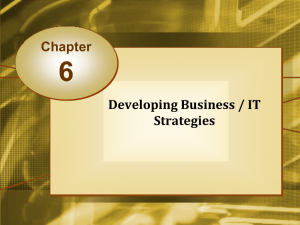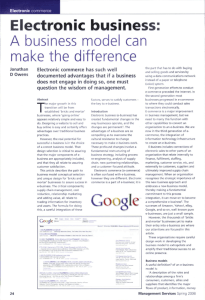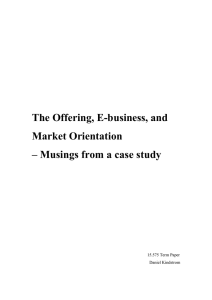China Lectures Below is an outline of the lecture series proposed by
advertisement
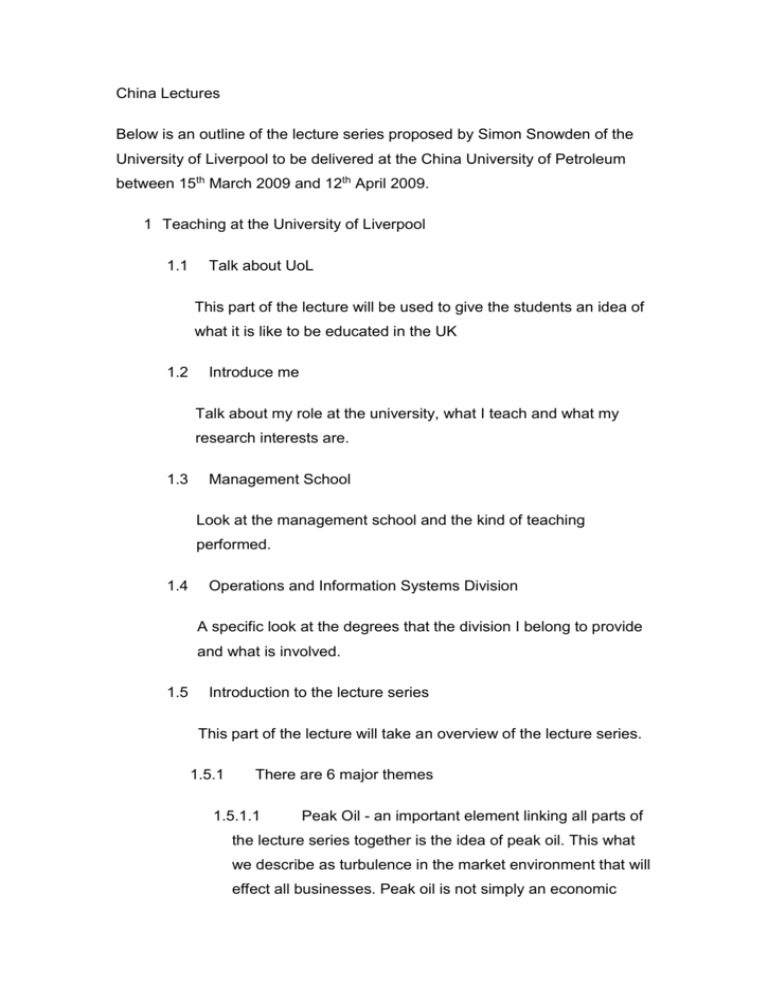
China Lectures Below is an outline of the lecture series proposed by Simon Snowden of the University of Liverpool to be delivered at the China University of Petroleum between 15th March 2009 and 12th April 2009. 1 Teaching at the University of Liverpool 1.1 Talk about UoL This part of the lecture will be used to give the students an idea of what it is like to be educated in the UK 1.2 Introduce me Talk about my role at the university, what I teach and what my research interests are. 1.3 Management School Look at the management school and the kind of teaching performed. 1.4 Operations and Information Systems Division A specific look at the degrees that the division I belong to provide and what is involved. 1.5 Introduction to the lecture series This part of the lecture will take an overview of the lecture series. 1.5.1 There are 6 major themes 1.5.1.1 Peak Oil - an important element linking all parts of the lecture series together is the idea of peak oil. This what we describe as turbulence in the market environment that will effect all businesses. Peak oil is not simply an economic crisis, but is also an economic and social crisis. 1.5.1.2 Impact Upon Business - So, accepting PO, what are the potential impacts upon business? Where could business be impacted. 1.5.1.3 Identification of Vulnerabilities - If all business is going to be impacted, then how can the individual business identify where they are vulnerable to PO. 1.5.1.4 Mitigation and Adaptation - So once we have identified where the impacts are how can we develop mitigation strategies, and, furthermore, how can business adapt to the new realities. 1.5.1.5 Agility - Here we will look at the discipline of agility and the development of dynamic capabilities. 1.5.1.6 ICT - How web based ICT can be utilised to develop and support dynamic capabilities. 1.5.2 Lectures - Finally go through the individual lectures as detailed below. 2 Competitive Strategy What motivates business? What is competition and competitive advantage? How can a company develop a competitive advantage? 2.1 Michael Porter Key to the development of competitive strategy is the academic Michael Porter. Who is he, what are his key ideas? 2.2 Industry Structure & 5 forces More detailed look at his major work including industry analysis via the five forces. 3 Operations management A brief look at operations management. If we are to understand how business is impacted we must understand how companies perform their value adding processes. 3.1 Definition Key definitions to do with operations management. 3.2 Lean Lean is a dominant theory surrounding business operations. Look at some key ideas such as Kaizan, 5S, push/pull, etc. 4 Supply Chain Management As per Operations Management, the same again for Supply Chain Management 5 E-Business E-Business will be key to developing responses to PO, so start looking at the basics of e-business. Examine its history to see if it tells us anything important. Then look at how business move through development of E-Business in their own organisation. 6 Beyond Web 1.0 Continuing with the e-business theme look at developments after web 1.0 e.g. 6.1 Development from Web 1.0 6.2 Social Networks 6.3 Collaborative Knowledge Networks 6.4 Podcasting 6.5 The Semantic Web 7 Social Inclusion One last lecture looking at what the web has become, an important social phenomena capable of playing an important role in social cohesion, the transmission of ideas and how this is important to business. 8 Sustainable Businesses So what is a sustainable business? Here we will discuss the basics of sustainable development. 9 Resource Vulnerability We have most of the basics in place so lets move to look at how we can make business more resilient. 10 9.1 The Oil Resource 9.2 Oil Vulnerability Audit Organisation and Culture The importance of culture in each organisation and how culture can be used to make the necessary changes. 10.1 Definitions 10.2 Types of Culture 11 Business Modelling, Agility, and Dynamic Capabilities This is the final lecture of the series and will bring together the various strands linked by Agility. Hopefully this will conclude the lecture series nicely showing that PO is a serious threat to business and that it must react. Then how various aspects of a business may be threatened, finishing with how an organisation can defend itself and the tools and skills required, 11.1 Draw Links through lecture series 11.2 A Complexity of Networks - Expand how networks at various scales are a useful defence mechanism. 11.3 Developing dynamic Capabilities 11.3.1 Agents of change - People are the most critical resource in developing dynamic capabilities.
